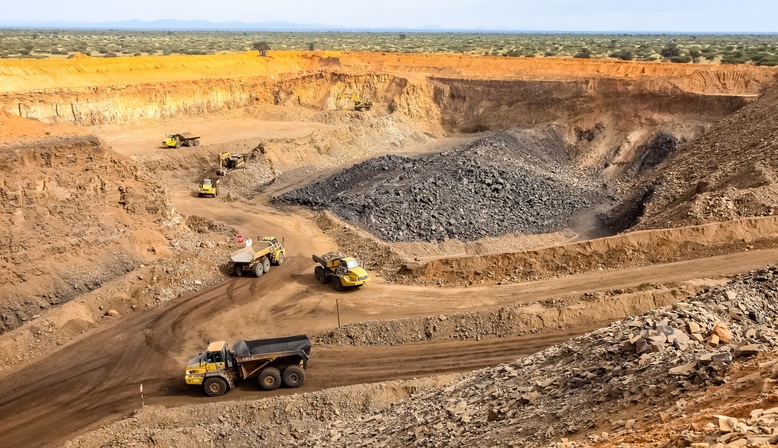Mining giants slip as rival tipped for success
16th September 2021 15:39
by Graeme Evans from interactive investor
The LSE's two biggest miners have had a rough day after Deutsche Bank tipped shares in their big rival as a better bet.

Shares in iron ore majors Rio Tinto (LSE:RIO) and BHP Group (LSE:BHP) fell sharply again today as a major City bank named Glencore as its top pick for the current “extreme divergence” in commodity prices.
Deutsche Bank upped its target on Glencore (LSE:GLEN) shares to 440p in order to reflect expectations that coal and aluminium prices will set records in the way iron ore has done in recent months.
The price of the key steelmaking ingredient has since fallen back on a deteriorating demand outlook in China, with a further downside for iron ore expected in the fourth quarter.
This led Deutsche Bank to lower its target price on Rio shares by 600p to 6,000p and BHP by 200p to 2,200p, although Anglo American continues to have a buy rating alongside a slightly lower target price of 3,600p.
- Mining results season ends on sour note
- Mining giants on course to dish out bumper dividends
- Check out our award-winning stocks and shares ISA
The downgrades will add to the hangover already being felt by mining sector investors after they enjoyed big dividends earlier this summer to reflect multi-year high commodity prices.
The FTSE 100 index fallers board was dominated by mining stocks today, including a 4% decline for Anglo American (LSE:AAL) and with BHP and Rio Tinto 2% lower.
Glencore shares were more resilient after falling less than 1% or 3.15p to 337.25p, as Deutsche raised its earnings forecast for 2021/22 by 7-8% and said the near and medium-term outlook for the company looked “very constructive”.
Its optimism comes as Chinese and international coal prices are being driven to record levels by a combination of strong demand, weak supply and import restrictions.
About 85% of Glencore's production is exported to countries where coal continues to play a leading role in power generation given its reliability and affordability. It also has exposure to the aluminium market, where prices are expected to remain high and volatile in the months ahead, partly due to power based rationing in China.
- Visit the ii Knowledge Centre for a wide range of investor education content
- Six things you must do before buying any share
Deutsche Bank believes the price momentum should lead to “bumper shareholder returns” in 2022, in the same way as has been delivered by the iron ore majors in the past year.
With the company's debt reduction efforts nearing completion, the bank is modelling total shareholder returns in 2022/23 of $15 billion (£10.8 billion) or about 25% of current market cap.
Half-year earnings recently came in at $8.7 billion (£6.25bn), triggering shareholder returns of some $1.2 billion and including $530 million (£380.8m) for payment this month.
While such returns will not sit easily with climate-conscious investors, Deutsche Bank said the company's commitment to “responsible stewardship” and steadily depleting the coal assets by 50% by 2035 and to zero by 2050 should resonate with those seeking action on climate change.
Glencore also has a leading position in transition metals that will be central to decarbonisation efforts, with top five positions in copper, cobalt, zinc and nickel.
Prices have been rising sharply, including for nickel amid strong demand from electric vehicle manufacturers as the metal is the heaviest component of a lithium ion battery.
Deutsche Bank said: “Over the medium term, we see the company's leading 'transitions metals' business and other self-help catalysts as re-rating drivers.”
These articles are provided for information purposes only. Occasionally, an opinion about whether to buy or sell a specific investment may be provided by third parties. The content is not intended to be a personal recommendation to buy or sell any financial instrument or product, or to adopt any investment strategy as it is not provided based on an assessment of your investing knowledge and experience, your financial situation or your investment objectives. The value of your investments, and the income derived from them, may go down as well as up. You may not get back all the money that you invest. The investments referred to in this article may not be suitable for all investors, and if in doubt, an investor should seek advice from a qualified investment adviser.
Full performance can be found on the company or index summary page on the interactive investor website. Simply click on the company's or index name highlighted in the article.